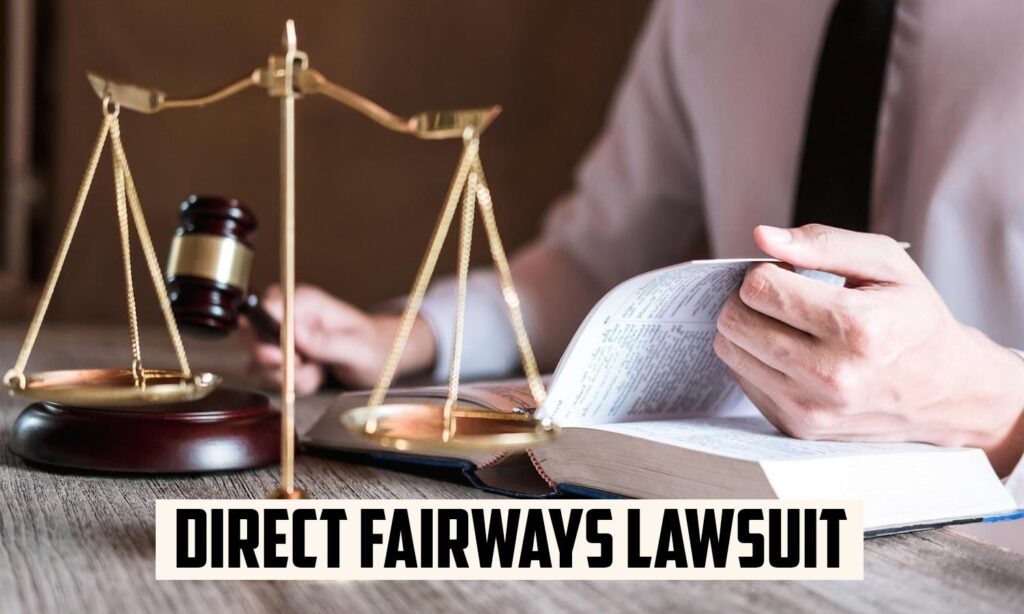Introduction
Legal disputes in the business world often catch public attention, especially when they involve well-known companies. One such case is the Direct Fairways lawsuit, which has been discussed widely in recent years. Direct Fairways, a golf marketing company, has faced scrutiny due to complaints and legal challenges from customers and regulatory bodies. For many business owners and golfers who have come across the brand, the big question is: what exactly happened, and what does it mean for both the company and its clients?
In this article, we’ll break down the lawsuit, provide background on the company, explore the allegations, and highlight the broader lessons businesses can learn from this case.
Background of Direct Fairways
Direct Fairways is a golf-focused marketing firm that offers advertising space in printed golf course guides, scorecards, and course directories. Their primary pitch has been to help local businesses increase visibility among golfers, a niche audience with strong purchasing power.
On paper, the business model seemed beneficial: businesses advertise in golf course materials, and Direct Fairways handles the design, printing, and distribution. However, over time, a growing number of complaints surfaced — primarily about customer service, billing practices, and fulfillment of promises. These concerns eventually escalated to legal action, leading to what is now commonly referred to as the Direct Fairways lawsuit.
What Sparked the Lawsuit?
The lawsuit arose after multiple small businesses alleged that they had been misled by the company’s sales tactics. The main points of contention included:
- Misrepresentation of services: Some businesses claimed the exposure they were promised didn’t align with reality.
- Billing disputes: Customers reported unauthorized charges or difficulties canceling services.
- Unfulfilled commitments: Advertisers stated that their ads were not placed in golf course materials as agreed.
These issues created a ripple effect, leading state attorneys general and consumer protection agencies to investigate the company.
Related Complaints and Legal Actions
While the lawsuit is the centerpiece of Direct Fairways’ legal troubles, it’s not the only challenge they’ve faced. Over time, several agencies have issued warnings and advisories regarding the company’s business practices.
Some related keywords to understand the broader picture include:
- Consumer protection lawsuit – Many of the allegations fall under this category.
- Marketing fraud claims – Complaints tied to deceptive advertising practices.
- Small business disputes – Since most of Direct Fairways’ clients are local businesses, these disputes gained attention.
By examining these related concerns, it’s clear that the lawsuit was not an isolated case but part of a larger pattern of issues.
The Impact on Small Businesses
For small businesses, every marketing dollar counts. When allegations of misrepresentation surface, it not only hurts the company involved but also damages trust in the marketing industry.
Imagine a local restaurant investing in an advertisement, expecting hundreds of golfers to see it, only to realize later that the ad wasn’t placed as promised. This not only results in financial loss but also wasted time and missed opportunities.
Some business owners affected by the Direct Fairways lawsuit shared stories of frustration:
- They struggled to reach customer service representatives.
- Refunds were rarely processed.
- Legal recourse often seemed too costly for the damages suffered.
This highlights the importance of transparency in marketing agreements.
Lessons Learned from the Direct Fairways Lawsuit
While the case is specific, it offers valuable lessons for both businesses and marketers:
For Small Business Owners
- Do your homework: Always research a marketing company before signing a contract.
- Check reviews: Online feedback from other businesses can reveal red flags.
- Read the fine print: Make sure the contract clearly outlines deliverables and cancellation terms.
For Marketing Companies
- Be transparent: Clear communication builds long-term trust.
- Focus on results: Deliver what’s promised to avoid disputes.
- Maintain good customer service: A responsive support team can resolve issues before they escalate.
Broader Implications in Marketing Lawsuits
The Direct Fairways lawsuit isn’t unique — similar cases have occurred in other industries. From online advertising scams to telemarketing fraud, legal disputes remind us that transparency and accountability are key.
Some broader implications include:
- Regulatory oversight is increasing as consumer complaints rise.
- Reputation damage can sometimes hurt more than legal penalties.
- Small businesses need more protection against deceptive marketing practices.
How Businesses Can Protect Themselves
To avoid becoming entangled in situations like the Direct Fairways case, small businesses can adopt the following strategies:
- Request references – Ask for contact details of previous clients.
- Demand documentation – Ensure agreements are in writing with clear timelines.
- Use trial contracts – Start with smaller commitments before scaling up.
- Consult legal counsel – When in doubt, seek advice before signing.
The Road Ahead for Direct Fairways
While the lawsuit has undoubtedly affected the company’s reputation, businesses often adapt and move forward. Some companies facing lawsuits rebrand, restructure, or adjust their business practices to rebuild trust.
For Direct Fairways, the challenge lies in regaining credibility within the golf and advertising communities. Whether they succeed depends largely on how they address past concerns and adapt to stricter industry standards.
Conclusion
The Direct Fairways lawsuit serves as a reminder that in business, transparency, accountability, and ethical practices are non-negotiable. Small businesses rely on trust when investing in marketing, and when that trust is broken, the consequences can be significant.
For business owners, the key takeaway is simple: always research, verify, and protect your investments. And for companies, the lesson is even clearer — delivering on promises is the surest way to avoid legal battles and maintain long-term success.

